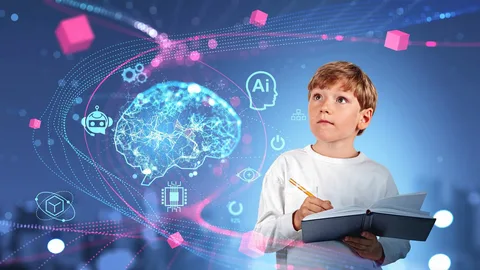Education has always been a cornerstone of human development, but the digital age is redefining how learning happens. Among the most revolutionary forces driving this change is artificial intelligence (AI). From personalized learning to automated administrative tasks, AI is reshaping the education AI landscape in ways previously thought impossible.
Personalized Learning for Every Student
One of the most significant ways how artificial intelligence is transforming the future of education is through personalized learning experiences. Traditional classrooms often adopt a “one-size-fits-all” approach, which can leave some students behind. AI algorithms analyze a student’s learning style, strengths, and weaknesses to deliver tailored content. Tools powered by AI can recommend exercises, quizzes, and resources that match individual needs, ensuring students progress at their own pace and retain information more effectively.
Intelligent Tutoring Systems
AI-driven tutoring systems are becoming increasingly sophisticated. Unlike standard software, intelligent tutors can interact with students, answer questions in real-time, and even detect when a student is struggling with a particular concept. This adaptability makes it possible to provide continuous support outside the classroom, helping students achieve mastery in subjects that traditionally require direct teacher supervision.
Streamlining Administrative Tasks
Another area where how artificial intelligence is transforming the future of education is evident is in administrative efficiency. AI can automate tasks such as grading assignments, scheduling classes, and tracking student performance. This allows educators to spend more time focusing on teaching and mentoring, rather than paperwork. By reducing administrative burdens, AI helps create a more productive educational environment.
Enhancing Collaboration and Engagement
AI also enhances student engagement through interactive and immersive experiences. Virtual reality (VR) and AI-driven simulations allow students to explore complex topics, from historical events to scientific phenomena, in a hands-on manner. Additionally, AI-powered platforms can facilitate collaboration by forming study groups, recommending peer interactions, and enabling teachers to monitor group dynamics effectively.
Preparing Students for the Future Workforce
As AI continues to integrate into everyday life, understanding and interacting with AI tools will become a critical skill. Educational institutions that adopt AI not only improve learning outcomes but also prepare students for a future workforce where AI literacy is essential. By embracing AI in classrooms today, we ensure that students are equipped to thrive in tomorrow’s technologically driven world.
Conclusion
In conclusion, how artificial intelligence is transforming the future of education is evident across multiple dimensions—from personalized learning and intelligent tutoring to administrative efficiency and immersive engagement. As AI continues to evolve, it promises to make education more adaptive, inclusive, and effective, ultimately shaping the next generation of learners to meet the demands of an increasingly complex world.


